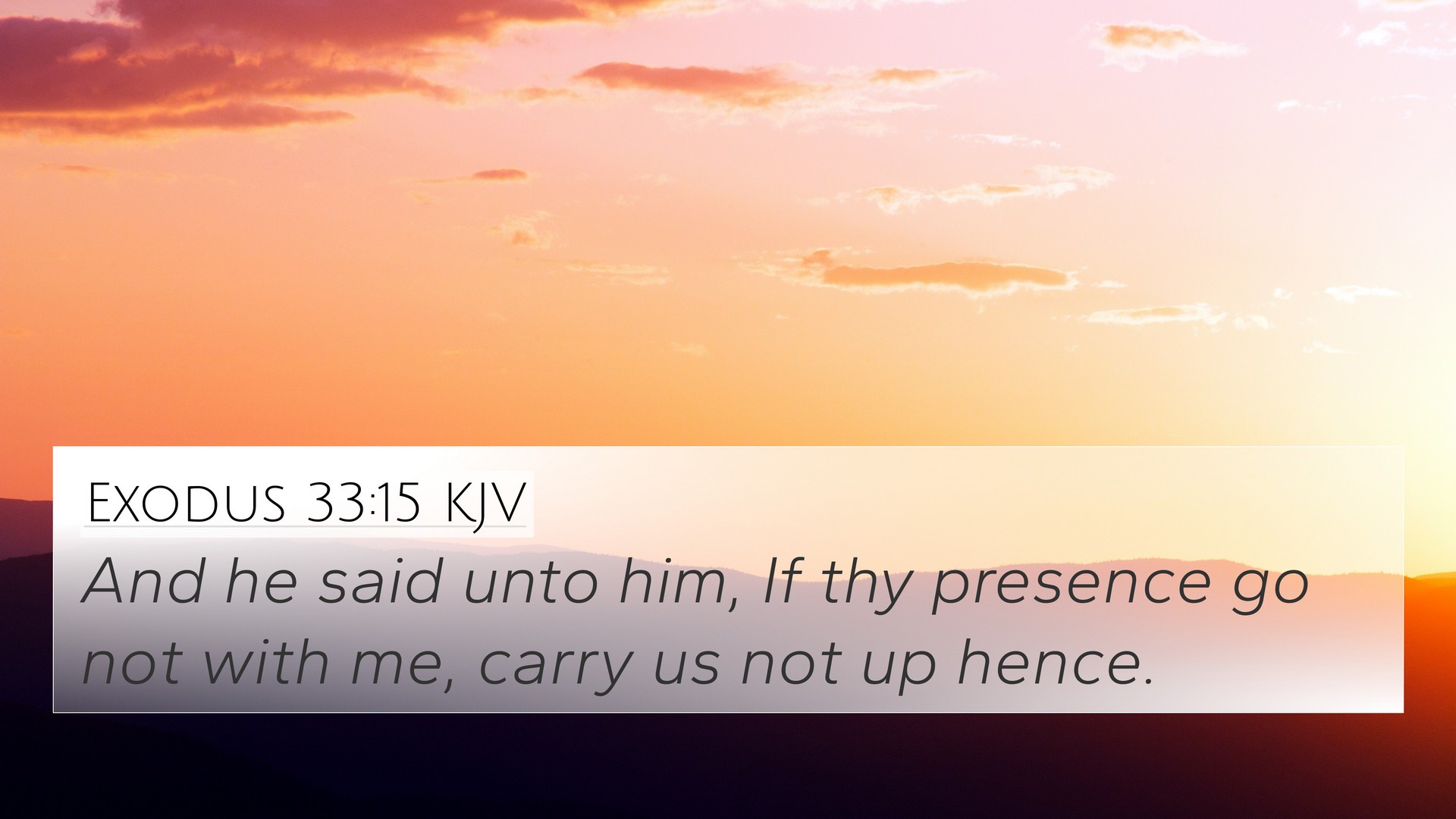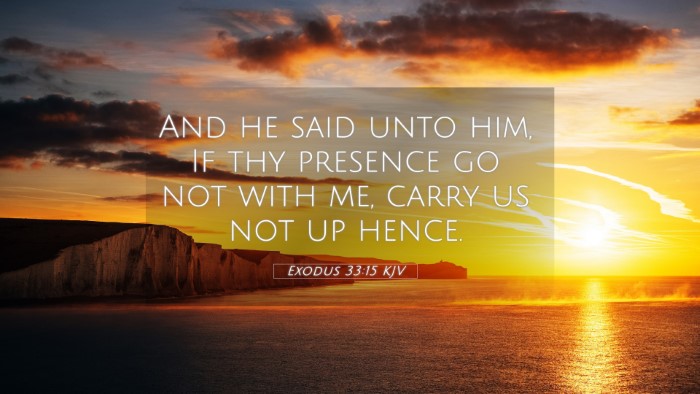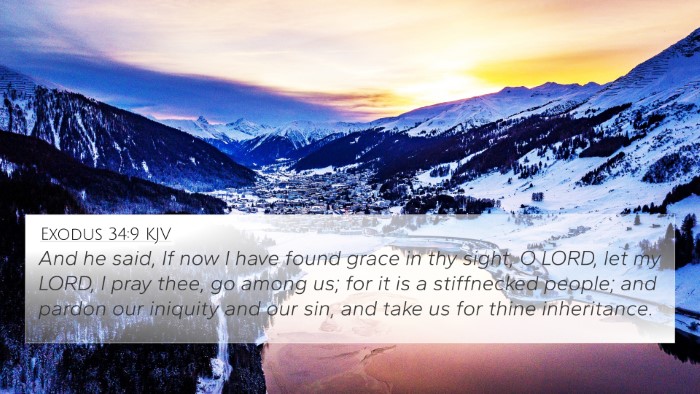Understanding Exodus 33:15
Exodus 33:15 states, "And he said unto him, If thy presence go not with me, carry us not up hence." This verse holds profound significance within the narrative of the Israelites as they journey through the wilderness under Moses' leadership. It reflects Moses' earnest plea for God's presence to accompany them, emphasizing the vital relationship between divine guidance and the people's journey.
Summary of Insights from Public Domain Commentaries
-
Matthew Henry:
Henry notes that Moses understood the need for God’s presence, which is essential for the success and safety of the Israelites. He emphasizes that without God, they would face danger and hardship that they could not overcome alone.
-
Albert Barnes:
Barnes comments on the strong connection between divine guidance and the identity of God's people. Moses recognizes that being led without God's presence would not only lead to physical peril but also signify a separation from God's blessing.
-
Adam Clarke:
Clarke elaborates on the nature of God's presence as a source of comfort, strength, and assurance. He remarks that Moses’ declaration signifies a deeper understanding of God’s guidance as crucial for their spiritual journey and mission.
Key Themes from Exodus 33:15
This verse highlights several key themes relevant to the overall narrative of Exodus and the broader scriptural context:
- The Importance of Divine Guidance: The necessity of God's presence in the believer's journey.
- Moses' Leadership: His role as an intercessor who advocates for the people of Israel.
- Spiritual Intimacy: The relationship between God and His people, emphasizing reliance on divine support.
Bible Verse Cross-References
Exodus 33:15 connects with several other biblical passages that strengthen its themes:
- Psalm 23:4: "Yea, though I walk through the valley of the shadow of death, I will fear no evil: for thou art with me;" - A reminder of God's presence in dark times.
- Deuteronomy 31:6: "Be strong and of a good courage, fear not, nor be afraid of them: for the Lord thy God, he it is that doth go with thee; he will not fail thee, nor forsake thee." - Encouragement of God's continual presence.
- Isaiah 41:10: "Fear thou not; for I am with thee: be not dismayed; for I am thy God: I will strengthen thee; yea, I will help thee;" - Assurance of God's supportive presence.
- Matthew 28:20: "And, lo, I am with you always, even unto the end of the world. Amen." - Affirmation of Christ's presence with believers.
- John 14:16-17: "And I will pray the Father, and he shall give you another Comforter, that he may abide with you forever;" - The promise of the Holy Spirit's presence.
- Hebrews 13:5: "Let your conversation be without covetousness; and be content with such things as ye have: for he hath said, I will never leave thee, nor forsake thee." - A reaffirmation of God’s everlasting presence.
- 1 Corinthians 10:13: "There hath no temptation taken you but such as is common to man: but God is faithful, who will not suffer you to be tempted above that ye are able;" - God’s presence during trials.
Thematic Connections and Analysis
Exodus 33:15 provides a focus on the importance of immersing oneself in the reality of God’s presence. The connections to other verses illustrate a consistent message throughout Scripture about reliance on God:
-
Inter-Biblical Dialogue:
This passage encourages comparing and contrasting Moses' dependence on God as a leader to New Testament teachings about reliance on Christ and the Holy Spirit. The dialogue stimulates a deeper understanding of how divine presence has been a constant theme across different contexts.
-
Bible Chain References:
Using tools for Bible cross-referencing allows readers to discover rich thematic links between Exodus and subsequent biblical texts. By recognizing connections, one can better appreciate God’s unwavering support throughout various biblical narratives.
-
Comparative Bible Verse Analysis:
Studying Moses' intimacy with God in Exodus compared to the relationship believers have through Christ enriches the understanding of faith as an ongoing journey made possible by divine guidance.
Conclusion
Exodus 33:15 serves as a profound reminder of the necessity of God’s presence in the journeys of believers. As Moses recognized the vital nature of divine accompaniment in his leadership, modern believers understand the same truth in their spiritual journeys today. The many cross-references provide a comprehensive framework for exploring the biblical concept of God’s presence and guidance, proving that scripture often echoes the same essential themes across different contexts.





